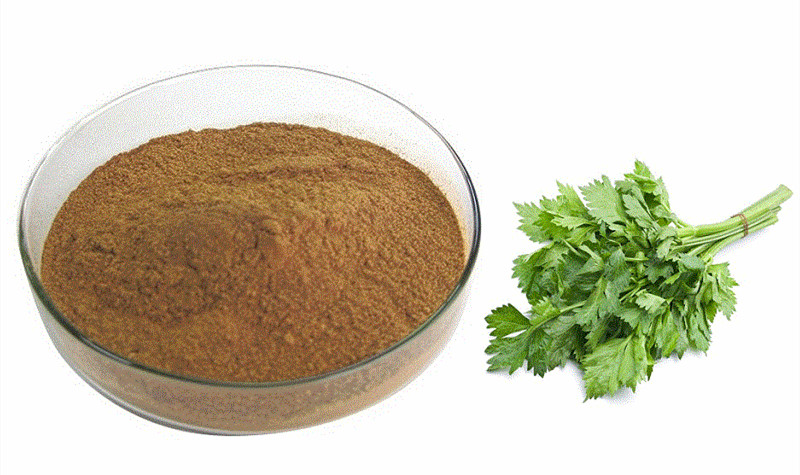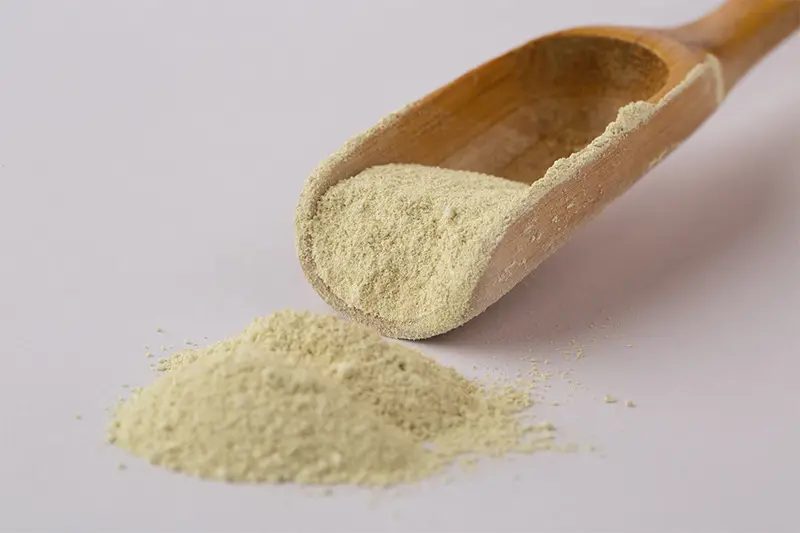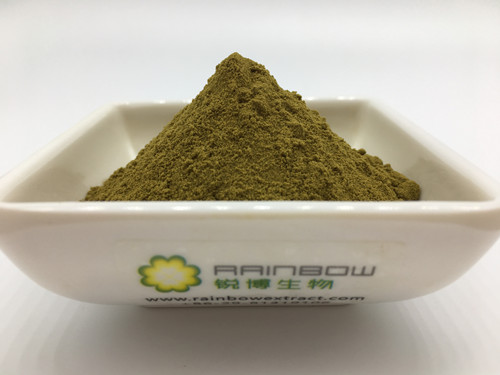Which Herb Extract Helps You To Reduce Uric Acid?
Uric acid is a waste product that formed during the breakdown of purines in the body, it is normally excreted through the kidneys and urine. High levels can lead to various health issues, including gout, a type of joint disease that is directly related to hyperuricemia and characterized by sudden and severe joint pain. Additionally, high uric acid levels increase the risk of developing kidney stones and may contribute to cardiovascular problems. Some urico-lowering drugs such as benzbromarone and prosulfaxol, allopurinol, and sodium bicarbonate tablets are exchanged for long-term use, However, many people with gout are worried about the side effects of the drugs, and like intake of some natural and safe remedies in their daily diet to help reduce uric acid. Here are some commonly used and effective uric acid-lowering herbal ingredients.
Apigenin
Apigenin, a kind of natural flavonoid, is distributed in vegetables and fruits in warm tropics, especially in celery seeds. Its biological safety and medicinal value are high. It has the effect of reducing blood pressure and lipid, anti-oxidation and preventing cancer. It was found that apigenin can effectively promote uric acid excretion, inhibit renal uric acid transporter 1 (URAT1) and glucose transporter 9 (GLUT9), enhance renal uric acid excretion function, significantly reduce serum uric acid level, and significantly improve kidney injury. The important enzyme involved in the production of uric acid is XOD, which can reduce the production of uric acid in vivo by inhibiting its production. It can be conclude that apigenin has a good effect of inhibiting XOD activity.
Luteolin
The olive is an evergreen tree of the genus Luteolin in the family Luteolin. It has a high content of luteolin and has been used in the treatment of cardiovascular diseases, Alzheimer’s disease, diabetes and hyperuricemia. Experiments have shown that luteolin can effectively relieve inflammation in rats with acute gouty arthritis by down-regulating TLR/MyD88/NF-κB pathway. In the study of the anti-inflammatory effect of luteolin on acute gouty arthritis model rats, it was found that luteolin can significantly reduce the inflammation in serum and joint cavity of model rats, and it down-regulates the expression of interleukin-1β in peripheral blood and synovium. Thus, the expression of interleukin-17, tumor necrosis factor-α (TNF-α) and IL-6 was down-regulated, and the inflammatory response of rats was effectively alleviated.
Quercetin
Quercetin (quercetin) is a flavonoid compound, contained in tea, which has the effects of lowering blood pressure, lipids and blood sugar, anti-oxidation, anti-virus, anti-cancer and anti-inflammatory. Quercetin can reduce serum uric acid in hyperuricemia mice. Studies have shown that quercetin has a preventive and therapeutic effect on hyperuricemia. By inhibiting the activity of liver XOD, quercetin can increase the body’s ability to clear oxygen free radicals and reduce lipid peroxidation, based on reducing serum uric acid levels without damaging the kidney, and can be used as an adjuvant therapy for patients with hyperuricemia.
Curcumin
Curcumin is a polyphenol derived from Turmeric, which has antioxidant and anti-inflammatory effects. An animal study showed that curcumin can lower uric acid while reducing kidney inflammation, and the researchers concluded that curcumin helps lower uric acid and treat kidney disease caused by high uric acid. You may experience benefits with Curcumin supplements after consistent use, but it’s essential to monitor for any adverse reactions and consult with a healthcare professional if necessary.
Chicoric acid
Chicoric acid is a caffeic acid derivative found primarily in chicory plant. Chicoric acid has antioxidant, anti-inflammatory, immune-boosting, hypoglycemic, liver protection and other effects. The researchers used quail to replicate the hyperuricemia model to verify the effects of chlorogenic acid, aescholine and chicoric acid on the lowering of uric acid and found that they can inhibit the activity of xanthine oxidase to different degrees, to achieve the effect of lowering uric acid.
Tart cherry extract
Tart cherries are rich in a variety of plant polyphenols (such as melatonin, proanthocyanidins, anthocyanins, etc.), which have been widely used in various dietary supplements to reduce blood uric acid, improve joint pain, and protect kidney health. Studies have shown that about 20 cherries a day may lower blood uric acid by 50%, reducing the risk of gout attacks. It found that cherry fruit extract can significantly inhibit the activity of xanthine oxidase in the liver of mice, thereby reducing the synthesis of endogenous uric acid and decreasing the concentration of blood uric acid. In a randomized, single-blind, cross-over human clinical trial, 12 volunteers who took tart cherry juice (30mL, 60mL) reached a peak of uric acid excretion at 2 hours (increased by 250% compared with non-users), and blood uric acid decreased significantly after 8 hours, reaching 178 μmol/L, indicating that tart cherry can increase renal excretion of uric acid.
While herbs can be beneficial in lowering uric acid levels, they are most effective when combined with dietary and lifestyle changes. Some herbs may interact with certain medications or exacerbate existing health issues, so it’s essential to use them responsibly and under the guidance of a healthcare professional, especially if you have underlying health conditions or are taking medication. By making dietary and lifestyle changes and using herbs wisely, you can take control of your uric acid levels and reduce your risk of related health problems.




